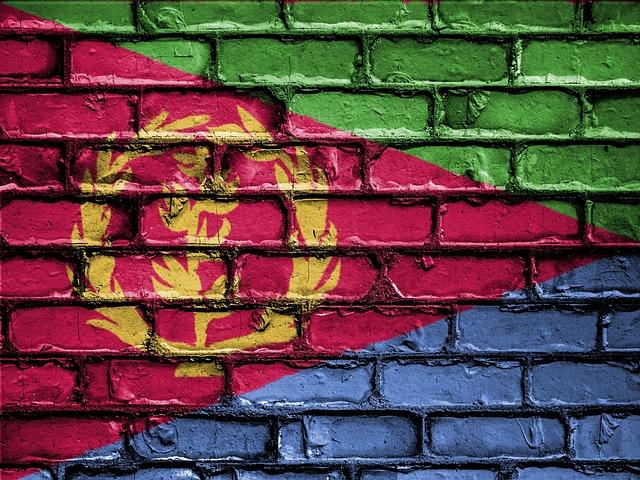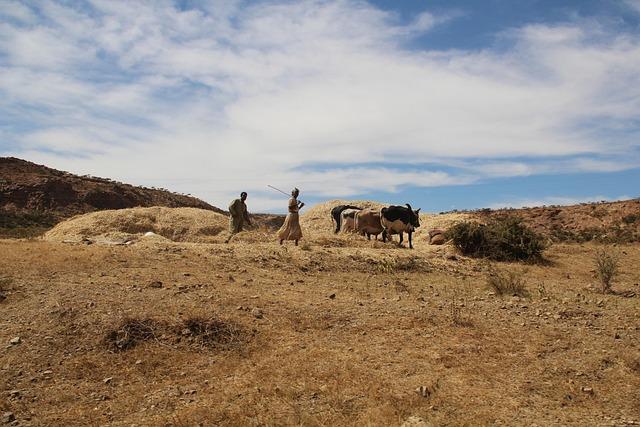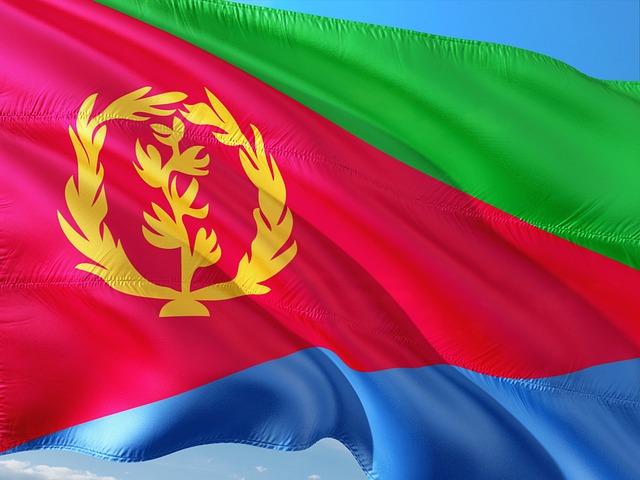In recent years, Eritrea has garnered increasing international attention due to its human rights violations and troubling political landscape. Amid a backdrop of ongoing repression, the Global Center for the Responsibility to Protect has called for the extension of the Special Rapporteur’s mandate to shed light on the dire situation within the country. This move, framed as a substantive resolution, aims to ensure continued monitoring and accountability for systematic abuses that have persisted for decades. As calls for intervention grow stronger, the international community faces a critical juncture: whether to reaffirm its commitment to humanitarian principles or to allow silence to prevail in the face of suffering.This article delves into the current state of human rights in Eritrea, the implications of extending the Special Rapporteur’s mandate, and the necessary steps to promote accountability and justice for those affected by decades of authoritarian rule.
Eritrea’s Human Rights Crisis: The Need for Continued Vigilance
The human rights situation in Eritrea remains dire,marked by persistent violations that demand unwavering international attention. Despite years of troubling reports, the Eritrean government has continued to repress dissenting voices and deny basic freedoms. Reports of arbitrary arrests, torture, and inhumane treatment in prisons highlight the urgent need for an independent mechanism to monitor and address these abuses.The inability of the international community to establish effective oversight mechanisms has allowed the regime to act with impunity, making it crucial to extend the mandate of the special Rapporteur to ensure ongoing scrutiny.
Continued vigilance is essential for supporting the aspirations of the Eritrean peopel,who have long endured a climate of fear and repression. The Special Rapporteur’s work not only sheds light on human rights violations but also serves as a platform for victims and activists to voice their concerns.A comprehensive approach should encompass:
- Strengthening international advocacy to publicly hold the Eritrean government accountable.
- Providing support and protection for human rights defenders at risk.
- Facilitating dialogue between the Eritrean regime and the international community.
| Key Issues | Impacts |
|---|---|
| Arbitrary Detention | Suppression of free speech and political opposition. |
| Torture and Mistreatment | Severe human rights violations without accountability. |
| restrictions on Freedom of movement | Isolation of citizens and families. |

Assessing the Impact of the Special Rapporteur’s Work in Eritrea
The work of the Special Rapporteur on the situation of human rights in Eritrea has been pivotal in bringing global attention to the country’s multifaceted human rights crisis. through comprehensive reports and fact-finding missions, the Special Rapporteur has highlighted critical issues, including arbitrary detention, torture, and forced labour, thereby shining a light on the severe restrictions faced by Eritreans. The consistent documentation of these human rights violations has not only informed international discourse but has also empowered advocacy efforts both within Eritrea and globally, encouraging a more robust response from the international community. Furthermore, the rapporteur’s work fosters awareness and solidarity, engaging civil society organizations and human rights defenders to call for accountability and justice in Eritrea.
To effectively gauge the impact of the special Rapporteur’s activities, it is necessary to consider various factors, including human rights awareness, policy changes by states, and engagement with international bodies. These elements have been instrumental in shaping a collective response to the crisis in Eritrea. The following table summarizes key areas of impact:
| Area of Impact | description |
|---|---|
| Human Rights Enlightenment | Increased awareness among global audiences about Eritrean abuses. |
| Policy Reforms | Encouraged foreign governments to reassess their relations with Eritrea. |
| International Engagement | Provoked discussions in the UN and among NGOs regarding Eritrean policies. |
Extending the special Rapporteur’s mandate is vital not only for sustaining momentum in addressing these pivotal issues but also for ensuring that the voices of Eritreans are heard. Enhanced oversight will serve as a critical mechanism for promoting accountability and facilitating dialogue on the need for meaningful reforms within Eritrea, ultimately aligning with broader goals of global human rights protection.

Documenting Abuses: The Role of International Oversight
The need for international oversight in documenting human rights abuses cannot be overstated, especially in cases like Eritrea, where the government has repeatedly suppressed dissent and disregarded the rule of law. A key aspect of maintaining accountability is the role of the Special Rapporteur, whose position has been crucial in bringing to light systematic violations such as arbitrary detention, forced labor, and restriction of freedom of expression. By extending the Special Rapporteur’s mandate through a substantive resolution, the international community can ensure that evidence continues to be gathered and that abuses are not merely swept under the rug.
Furthermore, international oversight serves several meaningful functions:
- Documentation of Evidence: Comprehensive reports can serve as critical documents for future accountability.
- Platform for Victims: Ensures that victims of abuse have a voice in international forums.
- Pressure on Eritrean Authorities: Keeps human rights issues on the global agenda, compelling the Eritrean government to reconsider its policies.
As such, the consequences of not extending the Special Rapporteur’s mandate could be profound, potentially allowing for further degradation of human rights in Eritrea. to illustrate the impact of oversight,below is a table summarizing key violations documented in recent years:
| Year | type of Violation | Estimated Cases |
|---|---|---|
| 2020 | Arbitrary Detention | 150 |
| 2021 | Forced Labor | 1,500 |
| 2022 | Restrictions on Free Speech | 100+ |

Strengthening Accountability: Recommendations for Action
To ensure continued oversight of the grave human rights violations occurring in Eritrea,it is imperative to advocate for the extension of the Special Rapporteur’s mandate. This can be achieved through a clear and robust resolution that emphasizes the need for accountability and justice. The international community should actively engage with regional organizations and member states to rally support for the resolution,ensuring it includes critical measures such as:
- Increased Reporting: Mandate regular updates from the Special Rapporteur on the situation in Eritrea to enhance transparency.
- Follow-Up Mechanisms: Establish procedures for following up on the recommendations provided by the Special Rapporteur.
- Dialogue Facilitation: Encourage state dialogue with Eritrean authorities to facilitate human rights discussions.
Furthermore, to bolster the effectiveness of the Special Rapporteur’s work, member states should commit to supporting capacity-building initiatives within Eritrea. this includes fostering partnerships with local civil society organizations and human rights defenders, allowing their voices to be amplified on an international platform. The following strategies could be integrated into the resolution:
| Strategy | Description |
|---|---|
| Enhance Local Engagement | Support training programs for local NGOs to empower community-based human rights advocacy. |
| Elevate Visibility | Utilize international media to highlight the plight of Eritrean citizens and draw global attention. |
| Promote Educational Initiatives | Fund educational projects that inform citizens about their rights and the mechanisms to uphold them. |

The Importance of International Solidarity with Eritrean civilians
The ongoing humanitarian crisis in Eritrea demands urgent international attention and solidarity with its civilian population. years of government repression, economic mismanagement, and military conscription have inflicted immense suffering on the people of Eritrea. International solidarity is crucial in amplifying the voices of Eritrean civilians and mobilizing global advocacy efforts that seek to address their plight. By supporting initiatives aimed at protecting human rights in Eritrea, the international community can help ensure that the individuals harmed by the oppressive political surroundings are no longer ignored. This includes fostering awareness on platforms such as social media, conducting public campaigns, and utilizing diplomatic channels to press for changes in Eritrea’s domestic policies.
Furthermore, extending the Special Rapporteur’s mandate through a substantive resolution represents a vital step in facilitating accountability and protection for those at risk.Key actions that this mandate can support include:
- Monitoring human rights abuses systematically.
- Documenting and reporting on the treatment of civilians, especially vulnerable groups such as women and children.
- Engaging with local civil society organizations to ensure their efforts are supported and recognized globally.
- Promoting humanitarian access and assistance to those suffering from the effects of repression.
through focused international engagement and concrete actions, the global community can demonstrate its commitment to the principles of human dignity and justice for Eritrean civilians.

Looking Ahead: A Call for Proactive Measures and Engagement
In light of ongoing human rights violations in Eritrea, it is imperative that we take a collective stance to enhance our advocacy efforts. The international community must prioritize the extension of the Special Rapporteur’s mandate through robust and substantive resolutions. This will ensure that the grave situations facing the Eritrean people remain in the global conscience and that accountability mechanisms are firmly established. By doing so, nations and organizations can join forces to promote transparency, encourage dialogue, and demand an end to impunity.
To mobilize action, the following steps are crucial for effective engagement:
- Advocacy Campaigns: Launch global campaigns to raise awareness and generate support for eritrean rights.
- Collaborative Platforms: Create coalitions among NGOs,civil society,and international bodies to share resources and strategies.
- Diplomatic Pressure: Engage with governments to strengthen diplomatic ties and leverage their influence in international discussions regarding Eritrea.
- Monitoring Mechanisms: Establish systems to document human rights abuses, facilitating timely reporting to relevant authorities.
| Key Focus Areas | Actionables |
|---|---|
| Human Rights Advocacy | Raise awareness and support for victims. |
| International Engagement | Encourage global leaders to act. |
| Research and Documentation | Collect data on abuses for accountability. |
| Grassroots Mobilization | Bring local voices to the forefront. |

Insights and Conclusions
extending the Special Rapporteur’s mandate for Eritrea is not merely a procedural necessity but an ethical imperative. As the situation in the country remains fraught with human rights violations and systemic oppression, the international community has a responsibility to ensure continued oversight and accountability. A substantive resolution will not only empower the Special Rapporteur to intensify their monitoring efforts but also send a clear message to the Eritrean government that the world is watching. Upholding the principles of the Responsibility to Protect demands vigilance and unity from the United Nations and its member states. As Eritreans continue to endure significant hardships, the commitment to protecting their rights must remain at the forefront of global discussions. Sustained advocacy and action are critical to fostering hope for a more just and equitable future for Eritrea.







